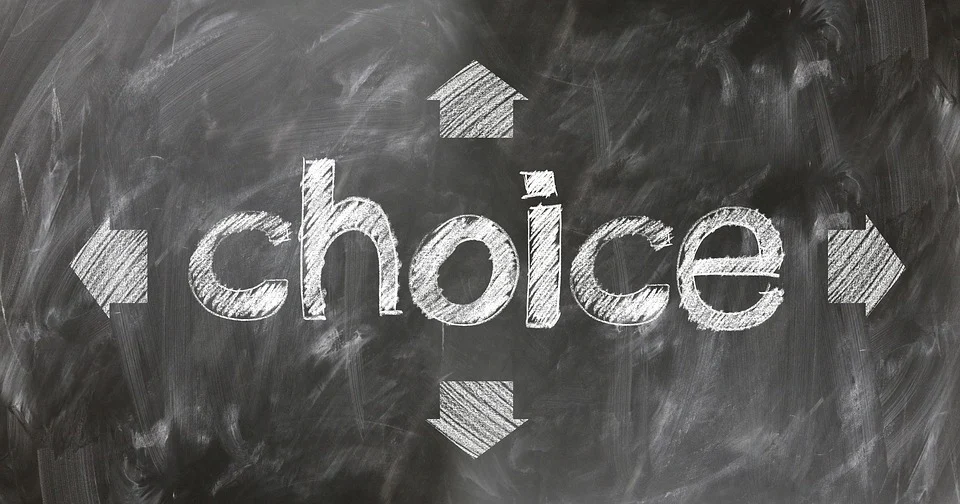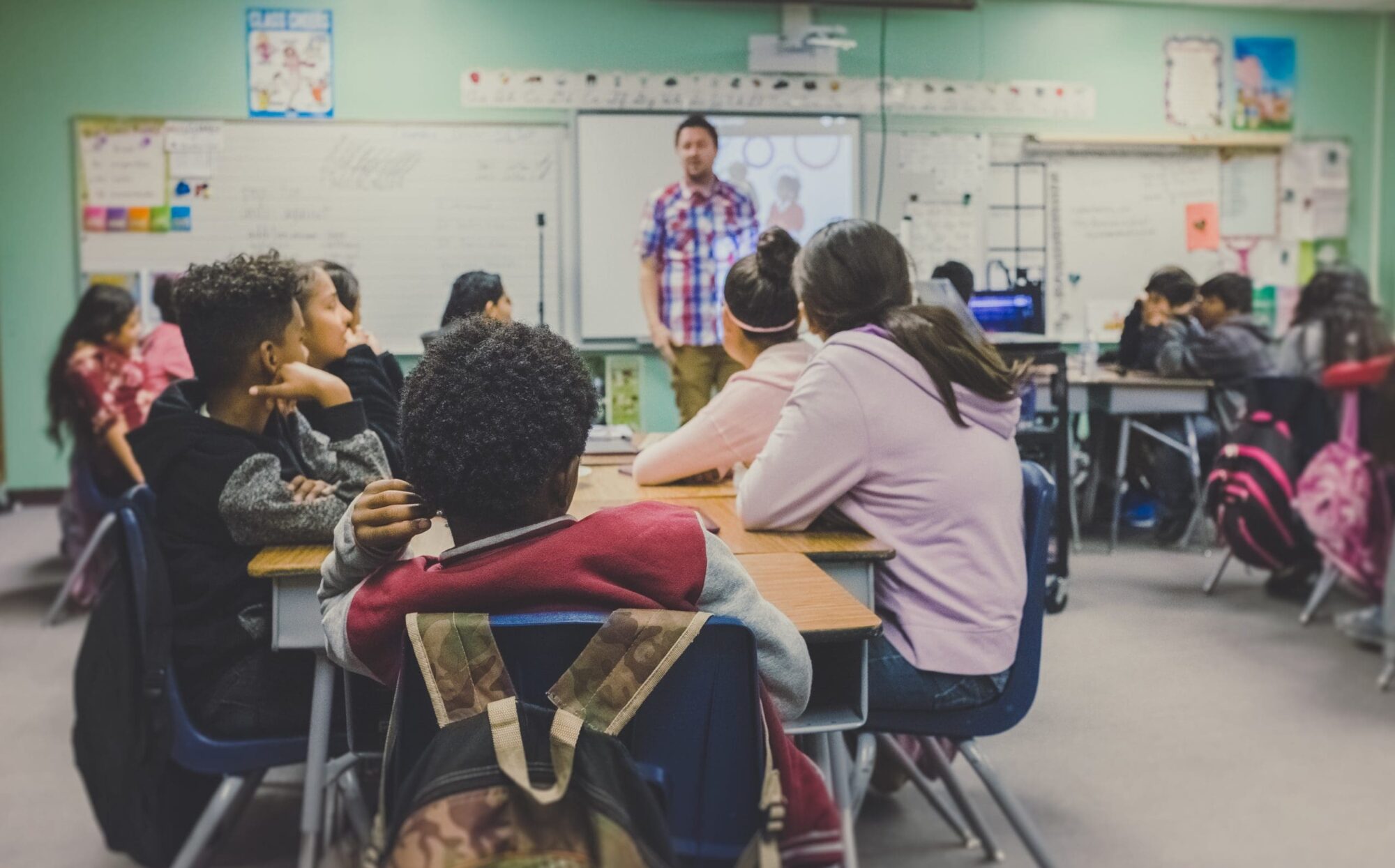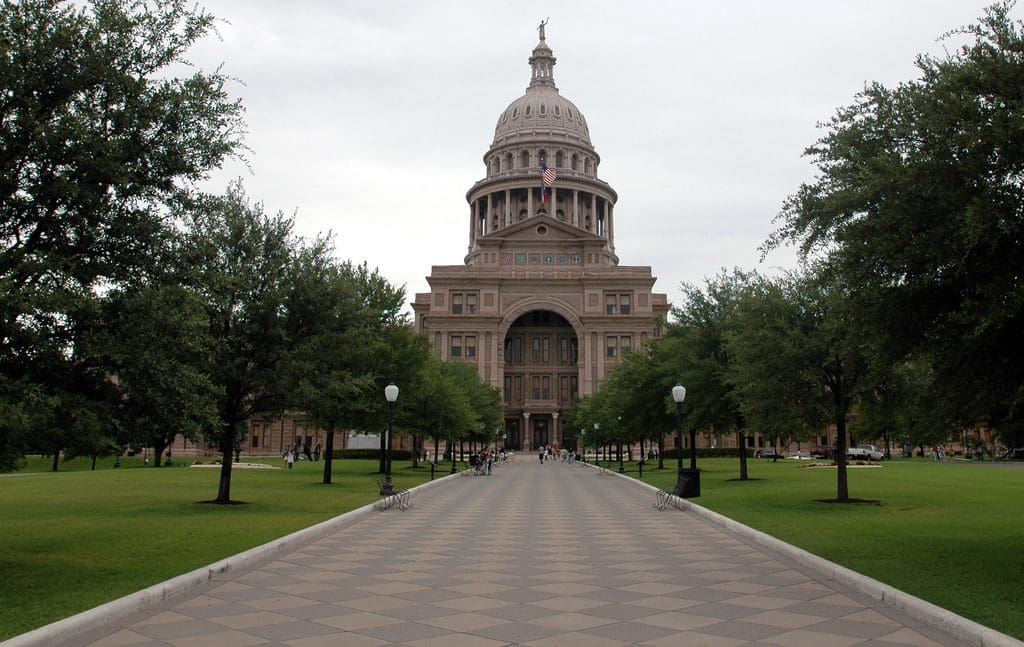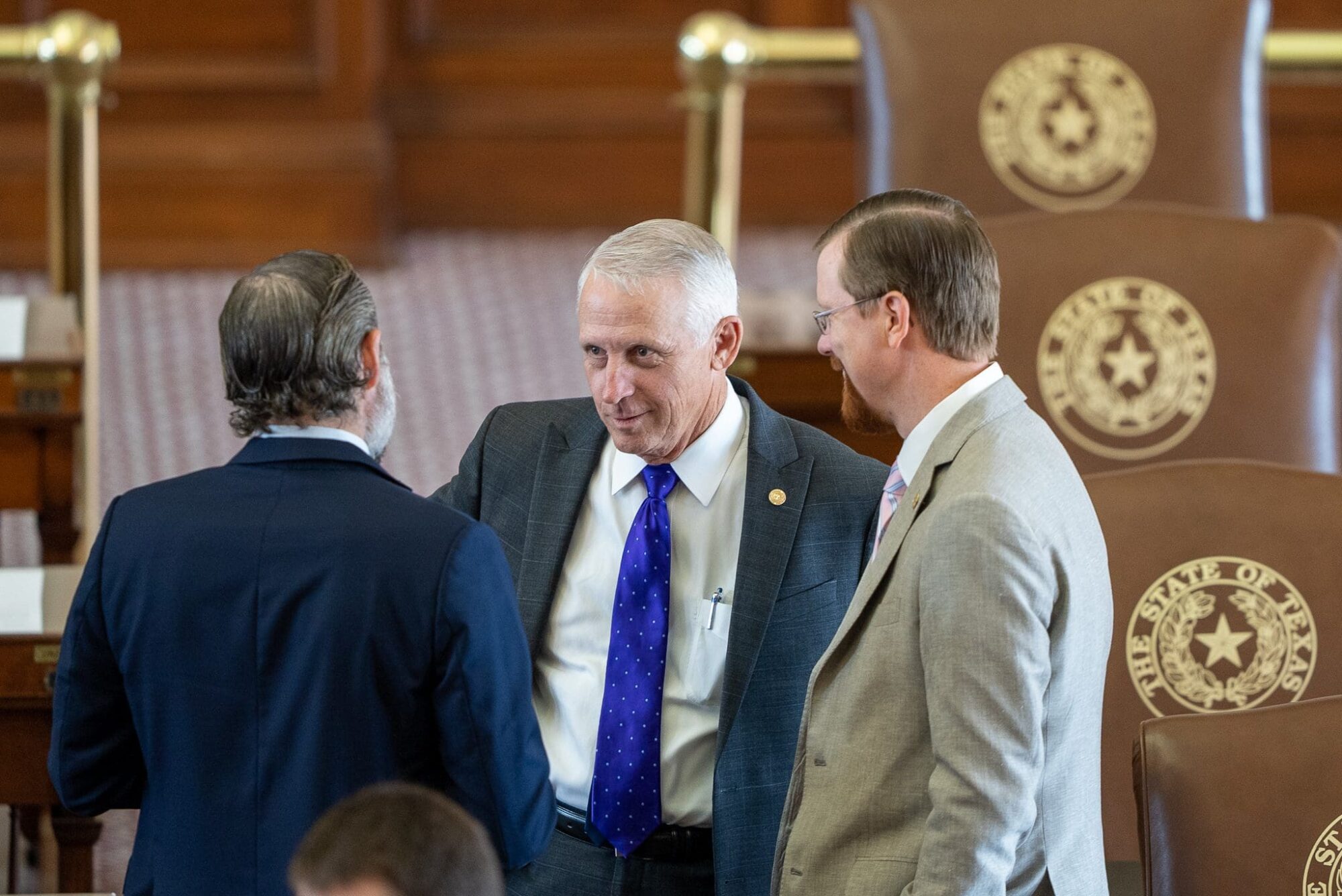A surging parent movement has reignited a national debate over who controls kids’ education, making school choice a hot topic again among Texas parents, policymakers, and politicians.
“It’s a great time to be a school choice advocate,” said Corey DeAngelis, an education policy researcher with the American Federation for Children who’s been reporting on the nationwide surge of support for parental choice in education.
DeAngelis was one of several speakers talking about empowering parents at the Texas Public Policy Foundation’s annual conference held in Austin last week, just ahead of National School Choice Week.
School choice has been on the conservative think tank’s policy agenda for years.
The parent movement elevated the issue at this year’s conference and spurred renewed support for school choice from politicians and policymakers.
Gov. Greg Abbott and Lt. Gov. Dan Patrick, both facing Republican primary challengers in March, signaled last week they’d back school choice legislation next session.
This week, TPPF announced their top legislative priority for 2023 is to “put parents in control of their child’s education.”
Calls for more parental choice in education have also renewed debates over the definition of “school choice” and whether it helps or hurts Texas students.
What Is School Choice?
School choice allows families to decide how and where to educate their kids.
Schooling options available in Texas include traditional public schools, public charter schools, magnet schools, private schools, online academies, homeschooling, and learning pods.
School choice can also mean letting parents use tax dollars designated for K-12 education to help pay for whatever type of schooling they choose. Money follows the child. DeAngelis describes it as funding students, not systems.
School choice plans offer parents tuition assistance through education savings accounts, vouchers, scholarship tax credit programs, or individual tuition tax credits.
According to the American Federation for Children, 30 states have private school choice programs. Texas isn’t one of them.
“School choice takes a family empowerment approach to education policy,” says economist Alexander Salter:
Instead of funding school districts, we should give resources directly to parents. The current model of education financing is a top-down, one-size-fits-all ‘solution’ that primarily benefits vested interests. Parents should be confident their children are getting the knowledge and skills to succeed in life. We need to shake things up. School choice puts students first.
Parents Empowered
Parents have been shaking things up for months, pushing back against an education establishment that likens them to domestic terrorists for speaking out at school board meetings.
Two big issues ignited the parent movement: government-imposed COVID policies that shut down schools; and parents discovering the proliferation of critical race theory, social-emotional learning, and sexually explicit material in their schools.
“COVID didn’t break the government school system; it was already broken,” DeAngelis said in a TPPF panel on how families can regain control over their children’s education.
Before, parents may have thought they were sending their kids to a good school. With COVID closures, families got to see what was going on in the classroom.
“Parents have woken up, and they’re never going to unsee what they saw in 2020,” he said.
DeAngelis said the parent movement represents a major power shift.
“Politicians would be wise to listen to this new special interest group—parents—going forward,” he said.
The movement has sparked a huge surge in support for school choice, to an all-time high of 74 percent in June 2021. In the past year, more than a dozen states have enacted policies to fund students over institutions.
Why School Choice Matters
DeAngelis said parents have discovered public schools are failing their kids in a new way, indoctrinating them with ideas at odds with their families’ values.
Yet long before parents began speaking against CRT, sexually explicit books, mask mandates, and other controversies heating up local school board meetings, school choice was seen as a way for kids to escape neighborhood public schools that were failing to teach them basic academics.
It still is.
A recent “fact check” in the Austin-American Statesman reported that 64 percent of Texas fourth-graders read below grade level, according to 2021 testing. The number was slightly better (57 percent) in 2019, before COVID closures. Achievement levels in other subjects are equally dismal. But results vary widely by school district.
“In Texas, ZIP code determines opportunity,” the report said. Choice proponents say that’s wrong.
School choice advocates also say competition provided by choice can push poor-performing public schools to do better.
All sides agree that given a choice, most parents will still send their kids to the local public school (in some cases, because no other options are available, though choice could change that). Local schools would continue to receive funding for all the students attending, just as they do now.
Still, Salter says school choice is “a game-changer” for ordinary families:
Instead of having their education dollars siphoned off to underperforming schools and districts, families get direct control over spending. As a result, they’ll be able to afford effective schooling. This is especially important at the K-12 level, when students learn the basic literary and arithmetical skills required to flourish. Additionally, we can make funding contingent on open access to all curricular and instructional materials, through online posting or similar methods. Parents stand to win big.
So why not empower parents with more options?
Pushback
People with a vested interest in Texas’ existing education system have always opposed choice, saying it defunds traditional public schools and gives tax dollars to unaccountable private companies.
DeAngelis disputes the argument that school choice “steals” money from the government-run school system, saying the money doesn’t belong to the public schools in the first place.
He also noted choice is the norm in pre-K and higher education, so why not K-12?
The public education lobby understands “families aren’t happy with the current system,” he said.
Even so, not everyone agrees that the right fix for the failing public system is freeing tax dollars for parents to spend on private schooling.
School choice opponents say it’s a Trojan horse for government to take control of private and home schooling. They warn taking public money will ruin those options by forcing them to follow the same state and federal regulations imposed on government-run schools.
“Texas already has choice that is mostly free from government interference,” says school choice skeptic Kim Gutierrez. “We can homeschool or we can private school in schools without accreditation. Any school, student or family that accepts taxpayer funding will be tied to either the fraudulent accountability system, corrupt standards, or bad accreditation.”
“Where is the ‘choice?’” asks longtime school choice opponent Alice Linahan.
Critics also argue the school choice movement is simply a ploy for private companies to profit at public expense.
Linahan goes further, calling school choice a “national security threat” that allows foreigners to infiltrate our education system.
DeAngelis says skeptics are making the perfect the enemy of the good. Parents decide if they want the money and any regulations that may come with it. And for many kids stuck in already highly regulated government-run schools, it’s the only way they’ll have a shot at a private option that serves them better.
He said even if some strings are attached, it’s better than the status quo. “Families shouldn’t be trapped in government schools any longer.”
Is there a better system that Texas parents can embrace? And if so, will Texas politicians support it?
Politicians Profess Support for School Choice, Again
DeAngelis said it would be “political suicide” to oppose parental choice in education.
With contested primary elections just a few weeks away, Texas’ top Republican politicians are publicly backing school choice—an issue they let languish the last two legislative sessions, despite strong support from Texans of all political persuasions.
Last week, Gov. Abbott gave a shout-out to school choice:
This upcoming session … you’re going to see a stronger, swifter, more powerful movement advocating school choice than you’ve ever seen in the history of the state of Texas.
At the TPPF conference, Abbott touted his Parental Bill of Rights that he said will protect the “essential role of parents,” though it doesn’t mention school choice.
Skeptics questioned Abbott’s proposal, pointing out his record of failing to support parental rights issues.
During Abbott’s seven years as governor, the Republican-run Texas Legislature has also failed to pass school choice measures.
Patrick, who’s presided over the Senate throughout Abbott’s governorship, blamed that failure on the state House.
In 2017, Abbott and Patrick backed school choice legislation that would’ve created education savings accounts and tax credit scholarships. The bill passed the Senate but never received a hearing in the House.
An earlier tax credit scholarship bill passed the Senate in 2015, but it also failed to get a hearing in the House.
“If we’re going to pass [school choice], we need House leadership that supports it,” Patrick said on the final day of the TPPF conference:
The governor’s in, and I’m in. What’s the problem with the third arm of the Legislature? When the governor, the lieutenant governor, and the speaker are all on the same page, it gets done. … It’s a new day. We have a new speaker. Let’s see what happens.
“I support public education, but parents need options,” he added.
U.S. Sen. Ted Cruz (R–TX) also chimed in on school choice during the TPPF event, calling it “a legacy for expanding opportunity.”
“School choice is the most important domestic issue in the country. It is the civil rights issue of this century,” Cruz said, repeating remarks he made at TPPF’s 2017 policy orientation.
Years later, parents and politicians are still debating school choice.
Republican primary voters will have a chance to weigh in on the issue in March, via a non-binding ballot proposition:
Texas parents and guardians should have the right to select schools, whether public or private, for their children, and the funding should follow the student.
School choice was a Texas GOP legislative priority for 2021, but it was largely ignored.
Will 2023 be the year Republican politicians deliver education options Texas parents want?





